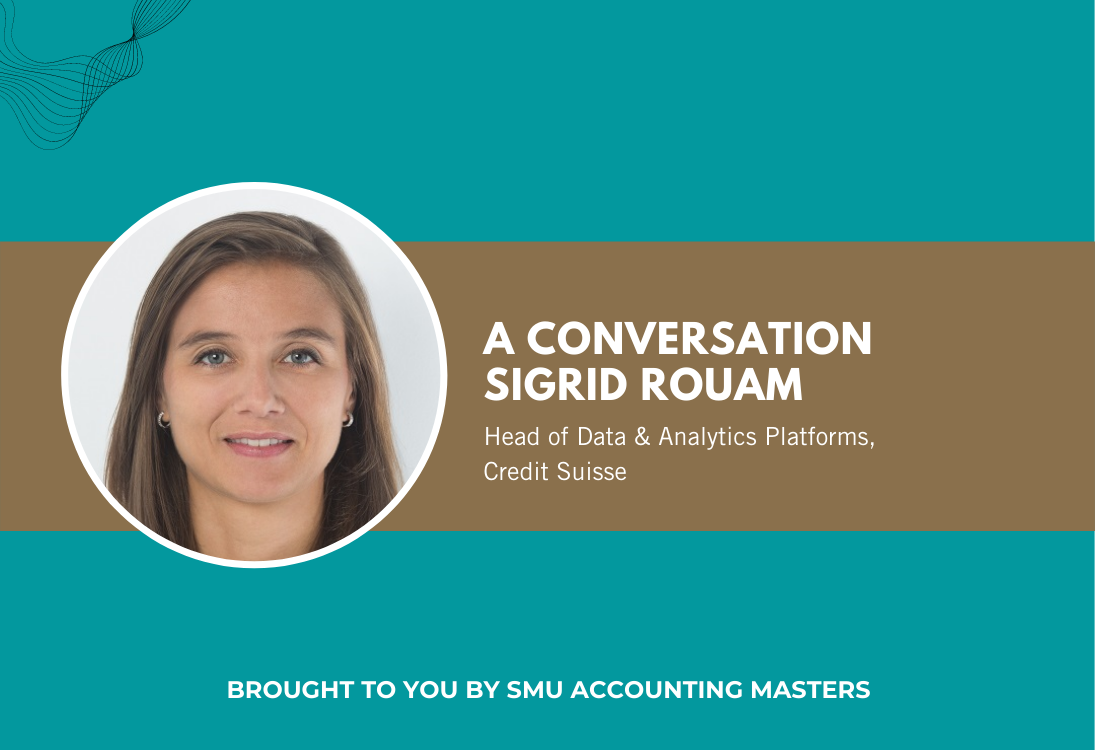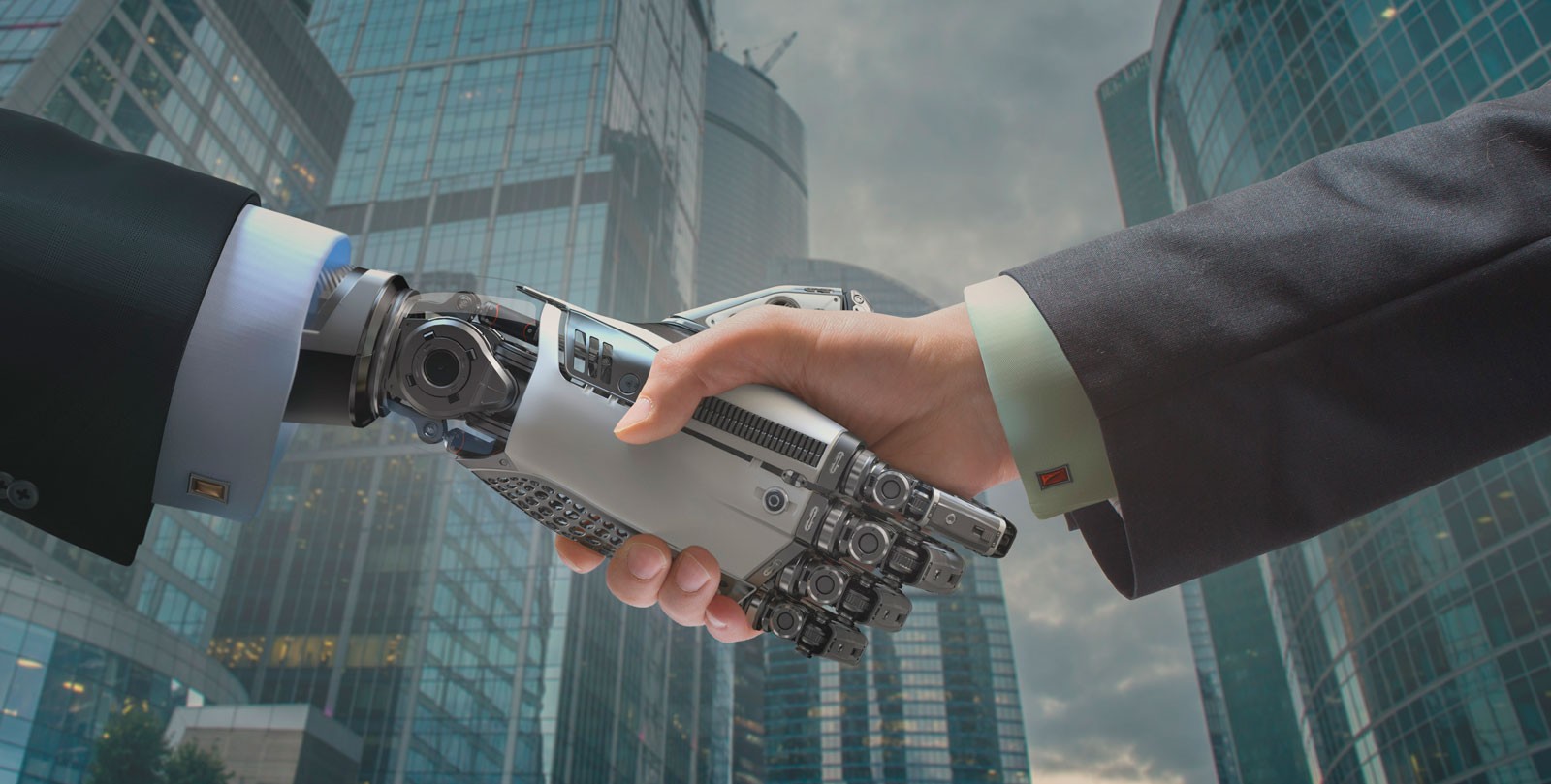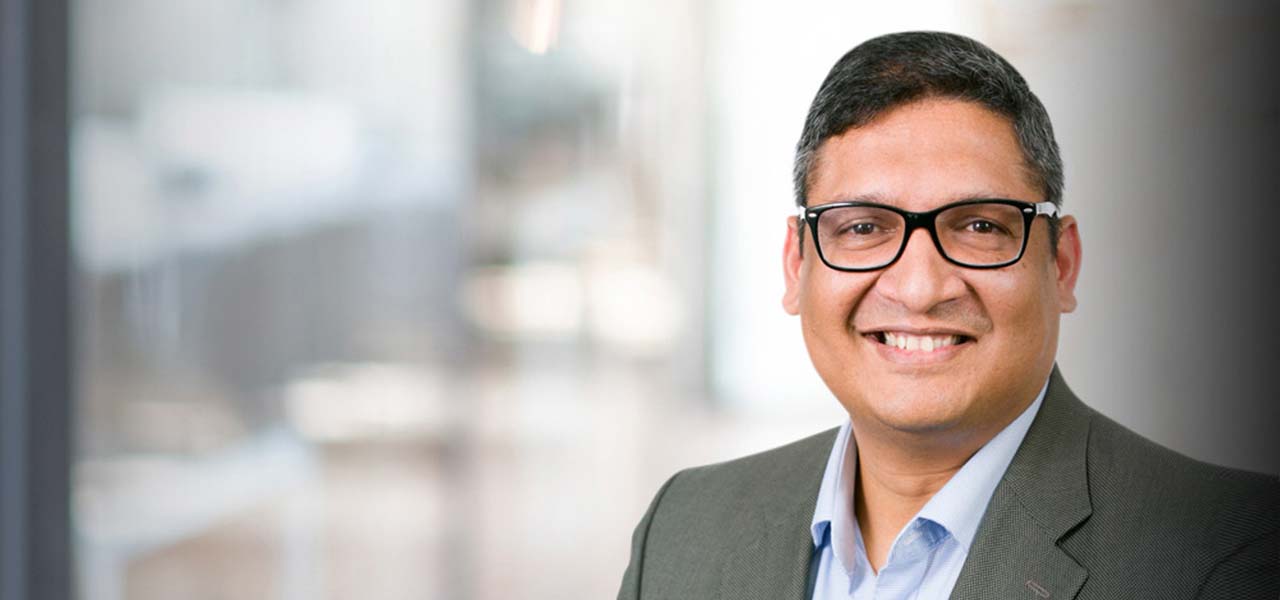The irrefutable benefits of data analysis and how companies are able to prosper with the proper utilisation of data and analytics coupled with how the advancement of technology has simplified the data mining process shows us exactly why more companies are jumping on the bandwagon of hiring such skilled workers.
Recognising that there was this skillset in demand within the industry, the Master of Science in Accounting (Data & Analytics) (MSA) was introduced in 2018 by SMU School of Accountancy (SoA). The first of its kind in Asia, the MSA was designed to bridge the gap between the accounting and I.T departments and so that accounting professionals were equipped with the skills necessary to handle big data and propose better business solutions. The Data Analytics Advisory Board (DAAB) was also created in tandem so that the Dean of SoA had a sounding board for strategic matters in the areas of data & analytics.
We recently had the privilege to speak to one of our DAAB members – Dr. Sigrid Rouam, Head of Data & Analytics Platforms at Credit Suisse. Sigrid has applied her data science expertise in a diversity of domains ranging from finance and consumer and clinical research to life sciences and telcos. Sigrid’s areas of expertise include data science, programming, project management, client management, coding, big data analytics, and data visualisation.
A self-professed geek at heart who is dedicated to nurturing the next generation of data scientists, this inspiring woman shares with us her insights on the future of the accounting industry, what she looks out for when hiring, and what skills young professionals must possess in order to stay ahead of the curve.
1. Please share a bit about yourself and why you chose this career path?
I currently head the Data Platforms for APAC at Credit Suisse and am responsible for driving the data strategy and implementation for wealth management, which includes designing the data architecture, enhancing data flow, advancing data visualization, generating client reports, building Open APIs, and, ultimately, creating business impact through advanced analytics and data science.
Prior to Credit Suisse, I worked in various industries including Genomics, FMCG, and Telco. I set up the data science teams at Singapore Exchange and Standard Chartered and led the development of the data science capabilities for both institutions.
Data science is constantly evolving and there is always something new to discover, from the design to the deployment of models, to the more recent emergence of topics around responsible AI. I am always interested in bringing innovative and new approaches to solve complex business use cases.
My passion is to spread the use of data science in and outside of my organisation, to enable better decision making to create a positive impact on businesses and society. If data-driven insights and decision-making are accessible to more people, the world can be a better place.
2. Name one of your biggest challenges so far, and how you overcame it?
One of my first and biggest challenges was to complete my Ph.D. Doing a Ph.D. is a long endeavour (mine took almost 4 years after my Masters). As with any research project, such as creating new statistical methods to discover new genetic cancer markers, you don’t know if it will lead anywhere. Failure is common and you have to pick yourself up many times. During my first year, everything I did had to be discarded. It was very disheartening. I thought of quitting so many times, but I persevered and one day things started to unlock. Eventually, I managed to publish 3 first-author papers and graduate with the highest honours.
Overcoming this has equipped me with the resilience and tenacity to address subsequent challenges in a positive manner. I don’t spend time lamenting on issues I can’t control but focus on what I can do to solve the problem. As a result, I don’t give up easily and never take ‘no’ for an answer. There is always a way.
3. What are your thoughts on the future of accounting and finance?
Accounting and finance are changing rapidly, I see these 3 trends as major drivers:
1) Growing adoption of technologies such as AI, Machine Learning (ML), and Distributed Ledger Technologies (DLT). Being in financial services, I am seeing companies make big investments in such technologies e.g., investment banking operations using ML to build prediction models to quantify and reduce risk, retail banks using predictive analytics to find new insights to better engage customers. The adoption of DLT has increased over the past couple of years, going beyond POCs to initial applications. For instance, trade finance provides many use cases for DLT to improve efficiency.
2) Increasing integration of Environment, Social, and Governance (ESG). Financial institutions have the potential to be an important facilitator of the change needed to tackle climate change and improve sustainability. Many banks are offering more green finance products to address their clients’ demands or to help them in their transition.
3) Heightened scrutiny from regulators on risk and compliance. The pandemic, the accelerated digitization in the finance sector, the emergence of ESG, etc have highlighted the need to ensure financial stability and enhance customer protection. As a result, regulators are strengthening the monitoring and evaluation of systemic financial risks, as we have seen with China.
4. Apart from accounting and business domain skills, what other skill sets do you think are crucial for our students to have to excel in the workplace?
Let me share what I look for when I interview candidates to join my team:
1) Tech Skills. Technology is central to any role in financial services, more specifically the ability to work with data (e.g., extracting data, manipulating data, even writing simple code can be beneficial)
2) Motivation & willingness to learn. I often see candidates call themselves “data scientists” after watching a couple of online courses, without trying to build their own models. You need to get your hands dirty to pick up new skills and demonstrate your willingness to take on new challenges.
3) Communication. Being able to explain to your customer why they should buy into your product or use your tool. If nobody knows and uses your product/tool, all the effort spent to develop it will go down the drain.
Other than the above, I also look for fit with the team and diversity. I build teams based on diversity (in terms of background, gender, seniority) where everyone can bring something different to the team. Exchange and collaboration are key to growing as an individual and as a team.
5. What would be your advice for the next generation of accountants?
Be strategic partners to the business. Accountants can develop more advanced skills and leverage innovative technologies so that they can increasingly serve as business consultants and strategic partners as opposed to simply financial experts. To remain relevant, accountants should move away from simply crunching numbers that machines can do faster and more accurately. Instead, they should tell the stories behind the numbers, think strategically, and anticipate future trends to help their organisations succeed in a fast-changing and complex environment.
Be curious. Ask more questions. Do not be afraid to admit that you don’t know something. Asking questions does not mean you are stupid; it shows you are interested in the topic or issue at hand and keen to learn more. It can unlock difficult situations by clarifying expectations, it encourages learning and the exchange of ideas. It can even help you to build good relationships with your co-workers by showing that you are interested in them.
6. As a member of the SMU SOA Data Analytics Advisory Board, amongst others. Why is it vital for you to support this sector?
Data & Analytics and are very important to the financial sector. It is fast evolving and there is much potential for companies to understand and unleash its power. Hence it is crucial that what is taught in universities is relevant to the industry.
SMU is very cognisant of this and appointed a panel of experts to share their experience and help shape the programs according to industry needs. I hope I can play a small part in helping to equip our next generation with the right set of skills, so they can enter the workforce more prepared and add value to the companies they join or start more quickly.
7. What do you want to be remembered for?
A transformation leader who is passionate about developing people and advancing the responsible adoption of AI. One who has empowered people & organisations with data, a thought leader who has pushed the thinking on AI, and a passionate mentor and community builder who nurtures the next generation.
I want to ensure that organisations get the most from what is their most valuable asset (besides people) and that they understand how to do it in a responsible manner. I actively share my views on how to build successful data science practices through platforms such as conferences, podcasts, articles. I am also working on various initiatives around data & AI. I believe that we can make a difference for our future by starting to change things now - tomorrow’s world will be built on what we do today. We have the opportunity to lay the foundations now for a more thoughtful & sustainable future for data & AI.
Last but not least, I am a firm believer in developing people and building communities. I volunteer my time as a mentor and contribute to my mentees' development. Hopefully, they will go on to create an impact in their chosen fields.
8. What is your philosophy or guiding principles in your life?
One thing that characterizes me is that I don’t take “no” for an answer. I like challenges and problem-solving. When facing obstacles, I will always find a solution. The expression “nothing ventured, nothing gained” really resonates with me - you can't expect to achieve anything if you never take any risks. Just try. What is the worst that can happen? Since I love sports, let me use a slogan by Adidas to sum up: “Impossible is Nothing” And the opposite is true as well - Nothing is impossible!





